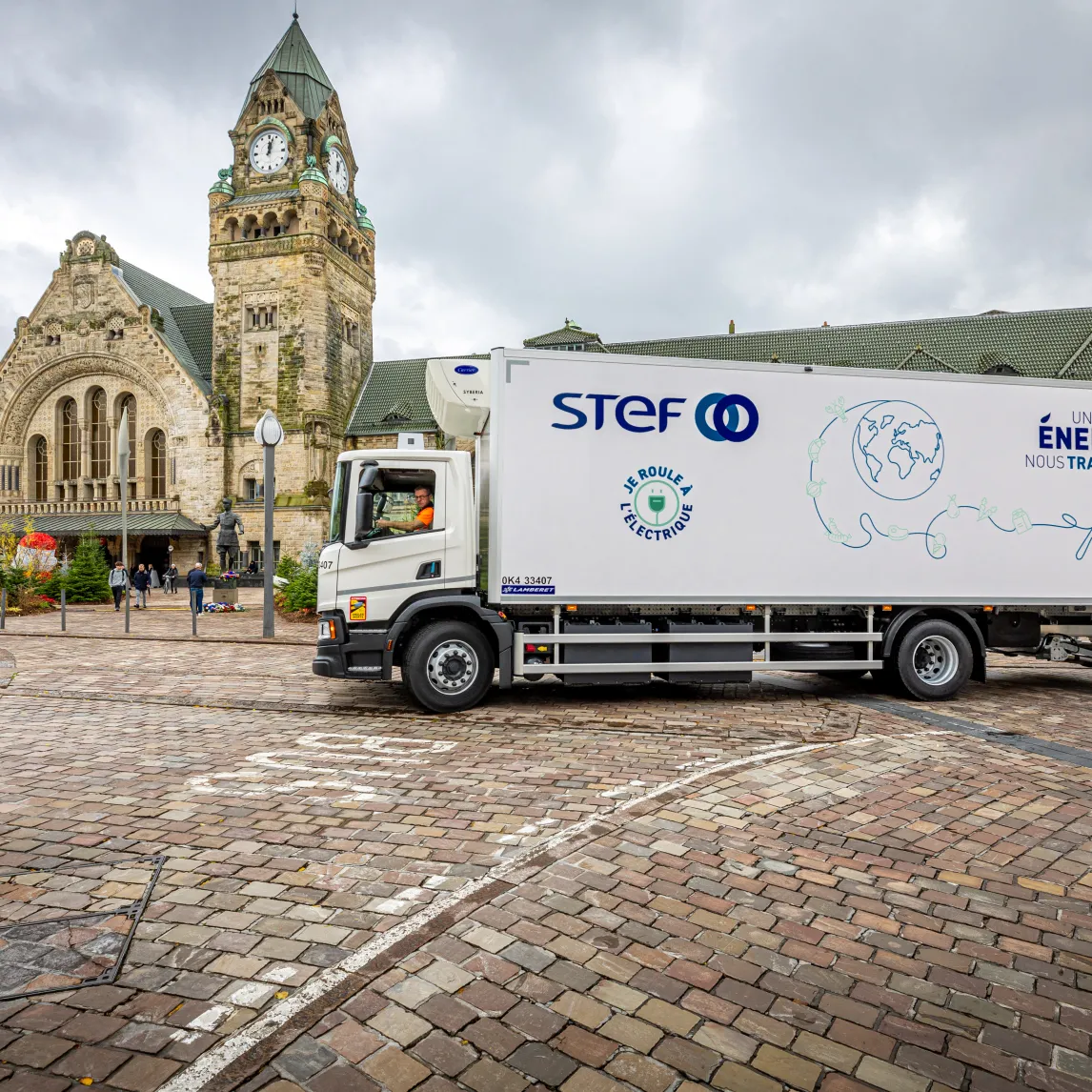One of the objectives of our Moving Green approach is to reduce greenhouse gas (GHG) emissions from our vehicles by 30% by 2030, through the optimisation of our transport plans, reducing the fuel consumption of our vehicles and favouring alternative energies.



90
vehicles equipped with nitrogen cryogenics since 2017
- 30%
target to reduce CO2 emissions from our vehicles by 2030.*
95%
of our vehicles comply with the Euro VI anti-pollution standard
Trophée EVE award
Following the launch of the river transport of temperature-controlled goods on the Seine Axis, FERRERO and STEF were awarded the EVE trophy for their environmental commitment in the "best cooperation between players" category

"Objective CO2" certification
In France, since 2016, the Group's results have been recognised by the ADEME "Objectif CO2- transport responsable" label (CO2 responsible transport).

Lean & Green

